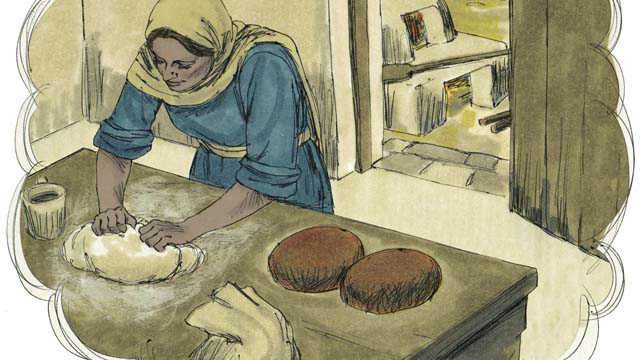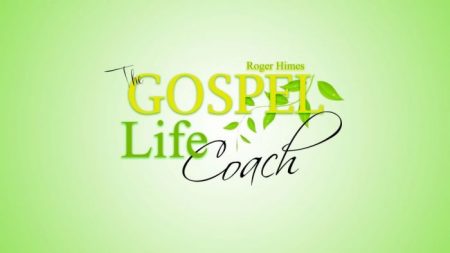4. The Parable of the Leaven
–
–

Roger Himes, The Gospel Coach
The Parable of the Leaven (or Yeast)
–
–
The Bible often talks about bad leaven, for instance ‘of the Pharisees.’ But in this parable it is good, godly leaven. What this parable says is that what we allow into us permeates us and grows in us. This describes the mustard seed we just saw in a different way.
–
The thought here is also that what we have inside of us is what flows out of us. Paul says we ‘increase’ and ‘abound.’ This speaks to the worldly GIGO principle: ‘good in, good out’ vs. ‘garbage in, garbage out.’ Thus, “As a man thinks in his heart, so is he” (Prov 23:7).
We all know that thoughts can either be good or bad — one way or the other.
When we are saturated with gospel truth, it flows out of us. This is the principle of GIGO: good in, good out. But sadly so does any bad WEEDS we allow into us, like other man-made, humanistic theologies. This is also the GIGO principle, but in the form of ‘garbage in, garbage out.’
–
This parable is about taking leaven, or yeast, and mixing it into flour until it saturated all of the dough, illustrating what Jesus calls ‘the gospel of God’s Kingdom’ (Mark 1:14-15). God’s Kingdom is meant to exist within our hearts today (Luke 17:21). Later, this same Kingdom will be seen physically (Rev 11:15). But now the way we experience it is by means of the gospel.
–
The gospel fulfills Jesus’ prayer: “Thy Kingdom come, thy will be done, on earth as it is in heaven.” We can’t experience heaven literally, but Paul says we are to keep at least one eye on it here, allowing it to govern us (Col 3:2). The gospel is what allows us to live in things of heaven while we are on the earth. The leaven shows us how this works: the gospel, like divine manna from heaven, permeates us if we let it into our heart.

First, like the mustard seed, God’s gospel Kingdom has small beginnings but grows large. Second, God’s gospel Kingdom has its influence in us from within. We are inside-out creations. “Guard your heart with all diligence because out of it flows the issues of life” (Prov 4:23). We are meant to guard God’s gospel in us because it produces good things from us (Col 1:5-6).
The nature of the leaven is to change whatever it makes contact with. We are the ‘dough,’ and in Romans, Paul calls us the ‘clay’ in the hands of the Potter.
We are meant to let the leaven of the gospel transform our minds so we think the thoughts of heaven, and so we are not conformed to the thoughts of the world (Rom 12:1-2). Like the leaven, the gospel is meant to be all consuming in us. Plus, it is contagious coming out of us in influencing others.
We honor God by allowing him to plant what he wants to plant into us – or to work his Kingdom leaven, or yeast into us. The gospel is what Father uses to change us into the glorious image of Jesus Christ (II Cor 3:18).
–
–
We all want to live in prosperity and health, but there is only one way we experience this. The same passage tells us we must live it internally, and then also walk in God’s truth and live it in daily life (III John 2-3). Paul, Peter and John always relate living in truth to living God’s gospel reality.
Go to Parable Video 5: Automatic, Spontaneous Growth
For a Wikipedia viewpoint: https://en.wikipedia.org/wiki/Parable_of_the_Leaven

The Gospel Life Coach

